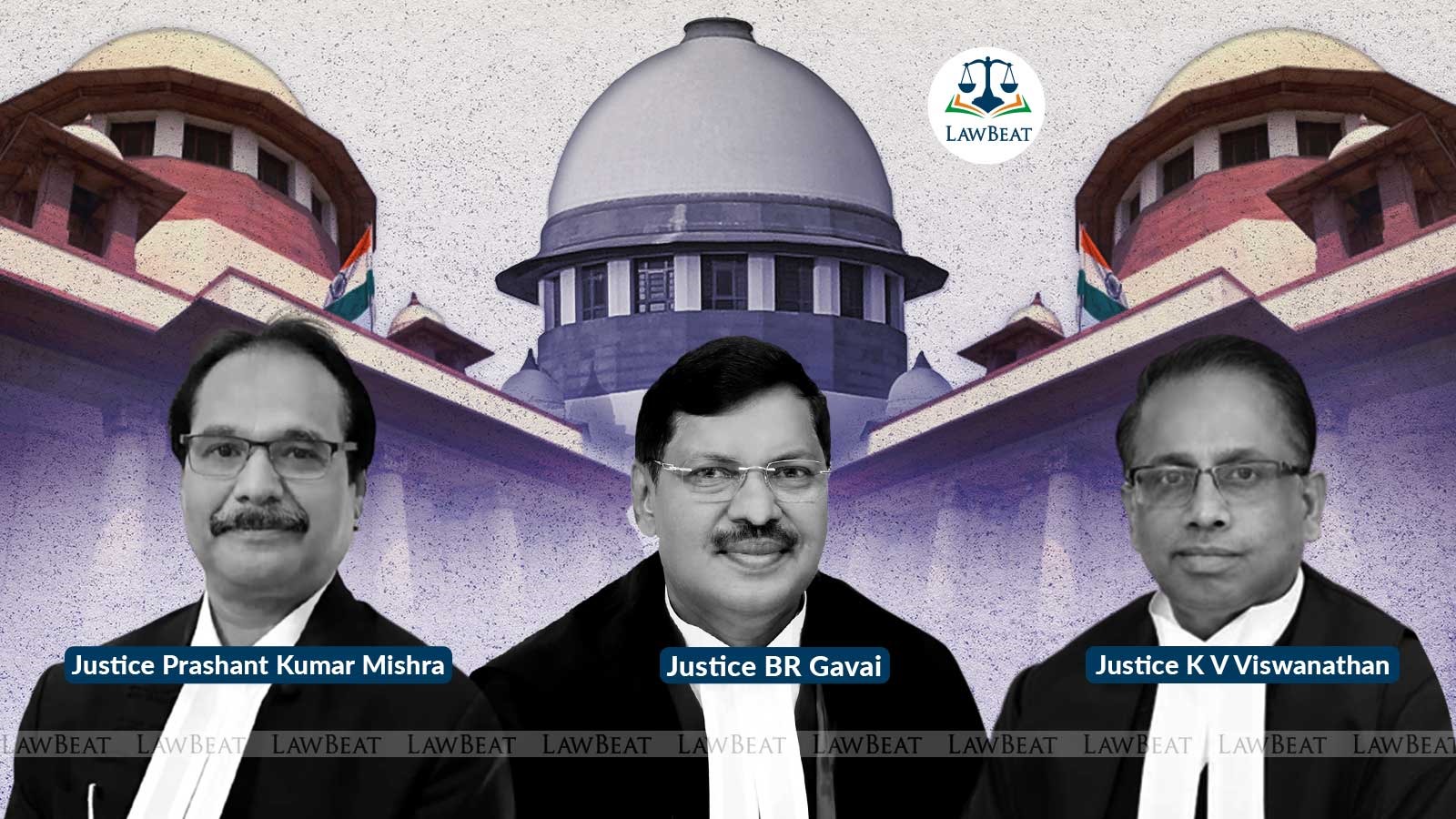‘Lawyer Should Not Act as Postman for Client’ : SC Rebukes Maharashtra Counsel Over Contemptuous Affidavit in Land Compensation Case

The case concerns land near Pune that the Maharashtra government illegally seized over 60 years ago, with the Supreme Court now considering monetary compensation for the landowner and requiring the state to reassess its market value, having previously rejected the ₹37 crore offer as insufficient
The Supreme Court, in a scathing rebuke on Wednesday expressed its displeasure over the conduct of the Maharashtra’s senior bureaucrats and legal representatives, particularly emphasising that a lawyer should not act as a "postman for his client" but should fulfill his duties as an officer of the court. The court also took the state government to task for its "dilly-dallying" approach and lack of seriousness in resolving a decades-old land compensation dispute.
The bench, comprising of Justice B.R. Gavai, Justice Prashant Mishra and Justice K.V. Viswanathan, emphasised that a lawyer's role extends beyond mere representation and that they must uphold the integrity of the judicial process. The court sharply criticised the state government counsel Nishant R. Katneshwarkar for permitting the filing of what the court deemed a "contemptuous" affidavit. The affidavit, submitted by Rajesh Kumar, Additional Chief Secretary of the Forest and Revenue Department, implied that the court "may not approve" the state's valuation of the disputed land, which the court saw as a challenge to its authority and an implication that it was not adhering to the law. The bench remarked, "You write anything in the affidavit, the officer signs the affidavit, and you expect us not to do anything." It further admonished the counsel, stating, "You have to be fair, not a postman for your clients, as an officer of the court.” Despite Katneshwarkar's prompt apology and efforts to withdraw the controversial affidavit, the court remained dissatisfied.
The court’s rebuke came in a case revolving around a piece of land near Pune that was allegedly illegally occupied by the Maharashtra government over six decades ago. The land was originally taken over by the Armament Research Development Establishment Institute (ARDEI), a unit of the Central Government's Defence Department.
In an earlier hearing, the Supreme Court rejected the state's offer of ₹37 crore as compensation, directing the government to reassess the current market value of the land. The state responded by filing an affidavit claiming that the compensation, based on fresh calculations, amounted to ₹48.65 crore. The affidavit, however, insinuated that the court might not agree with this valuation, prompting the court's stern response. Adding to the complexity of the case, it was later discovered that an alternative piece of land allotted to the applicant in lieu of the original property was designated as forest land, rendering it unsuitable for the intended compensation.
The Supreme Court expressed its frustration with the Maharashtra government's repeated delays and apparent lack of commitment to resolving the matter. The bench noted that the state had sought additional time to re-calculate the compensation but had failed to present an accurate and satisfactory figure. "It appears that the state is adopting dilly-dallying tactics," the bench observed, adding that the state government's actions reflected a non-serious attitude towards paying the compensation due.
Justice Viswanathan specifically criticised the state's decision to calculate the land's value based on outdated 1989 circle rates, merely increasing the interest payable, rather than assessing the current market value. "The authorities should have taken into account the current value of the land for calculating the compensation," he stated.
The court also considered the fresh affidavit submitted by the state, which mentioned that a meeting chaired by the Chief Secretary, with the involvement of various senior officials, had resulted in the identification of an alternative parcel of land measuring 24 acres and 38 gunthas. This land, located in Moje Yewalewadi, Pune, was proposed as compensation. However, the court remains skeptical about the state's intentions and commitment to resolving the issue fairly.
The court has directed Rajesh Kumar to appear before it on September 9 to explain why contempt proceedings should not be initiated against him for the "contemptuous" remarks made in the affidavit.
The bench also warned that it might halt the Mukhyamantri Majhi Ladki Bahin Yojana, a scheme proposing ₹1,500 monthly payments to eligible women, if the state continued to delay compliance.
The applicant, represented by Senior Advocate Dhruv Mehta, has been given the opportunity to inspect the proposed alternative land on August 30 and inform the court of his preference—whether to accept the land or pursue monetary compensation.
The next hearing is scheduled for September 9, where the court will determine the future course of action, including potential contempt charges against the senior IAS officer.
Cause Title: In Re: Construction Of Multi Storeyed Buildings In Forest Land Maharashtra
